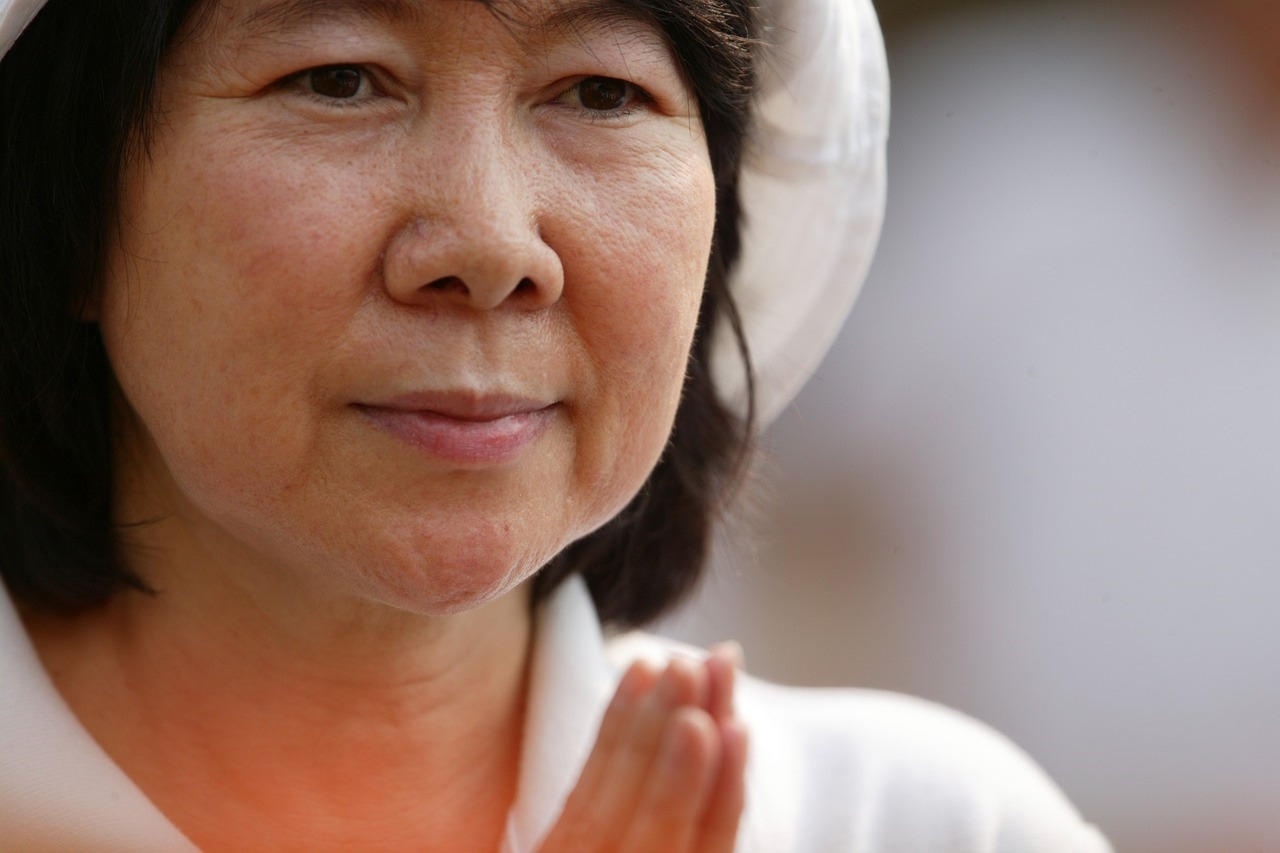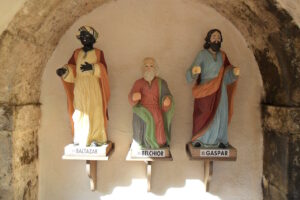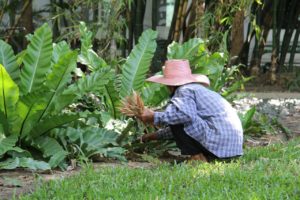Zephaniah 2:3, 3:2-13 (RM) or Micah 6:1-8 (RCL); Psalm 146 (RM) or Psalm 15 (RCL); I Corinthians 1: 26-31 (RM) or 18-31 (RCL); Matthew 5: 1-12.
I don’t know what came over me. I’d normally slink away from doing this.
But I had served as cantor and leader of song, and as the congregants were filing out I was seated in a front pew near the sacristy door. So I got up and went in.
The pastor was putting vestments away when I spoke to him, politely pointing out that the readings that day had used language that spoke of “man” or “men” when the meaning indicated that all persons were intended. I added that this language had carried over into the sermon. (The pastor was a non-native speaker of English. It can happen.)
He snorted back, “You must learn to be humble!”
I smiled gently and replied, “Men must also learn to be humble.”
Our Gospel reading for this Sunday is Matthew’s version of the Beatitudes from the Sermon on the Mount. The standard translations into English clearly indicate all persons in a particular category (“the poor, the meek, those who mourn”) are addressed. But we know today that not all persons enjoy an identical position socially or culturally. We know that in fact categories such as gender are socially constructed to the extent that stereotypes, blatant prejudice, even exhortations to certain behaviour such as “Be humble!” can, too often, operate freely. Is this justice? Is this a safe faith community for all?
Let’s first look at the background of Matthew’s Beatitudes, then grapple with the concept of humility.
Jesus is speaking here, not to the crowd he left behind at the base of the mountain (symbolically Mount Sinai where the Ten Commandments were given), but to his first four disciples. Matthew’s and Luke’s Beatitudes vary greatly in structure but the original source material is believed by scholars to be authentically Jesus’ via an early source known as Q. In their form, according to The New Jerome Biblical Commentary, they represent an “exclamation of congratulations that recognizes an existing state of happiness… a cry of joy.” The poor, the needy, those who mourn, are all adjectives for the same people, the subjects of Jesus’ compassionate ministry: “God was conceived of as an Oriental king, and a king’s duty was to protect the weak.” Matthew introduces a spiritual dimension to economic poverty by speaking of the poor in spirit. “In the Bible economic destitution was an evil to be corrected and wealth is not an evil in itself … but it risks neglect of God and the poor. God’s first priority is the care of the poor.”
Using the form of a clear and direct teaching, Matthew sets out a program of moral growth in virtue: detachment from wealth-seeking, gentleness, mourning the existence of human evil on earth, seeking and granting mercy, refusal to wreak vengeance, sincerity of heart, and the making of peace in its fullest sense, Shalom.
Notice we haven’t said anything here about deliberately weakening people by intention or aggression. Nothing about making others, or oneself, easy to manipulate, submissive to unjust domination or vulnerable to exploitation. No hint that God intends to crush those who already struggle to maintain some semblance of dignity.
That is not Matthew’s God (however much we might quibble with the “Oriental king” image.) Not ours either.
Jesus lays out a program by which even the least important of people can bring about the in-breaking of the living presence of the Holy One upon the earth.
© Susan K. Roll
Susan Roll retired from the Faculty of Theology at Saint Paul University, Ottawa, in 2018, where she served as Director of the Sophia Research Centre. Her research and publications are centred in the fields of liturgy, sacraments, and feminist theology. She holds a Ph.D. from the Catholic University of Leuven (Louvain), Belgium, and has been involved with international academic societies in liturgy and theology, as well as university chaplaincy, Indigenous ministry and church reform projects.





Each of us being called to “bring about the in-breaking of the living presence of the Holy One upon the earth” is a remarkable purpose
for every living being.